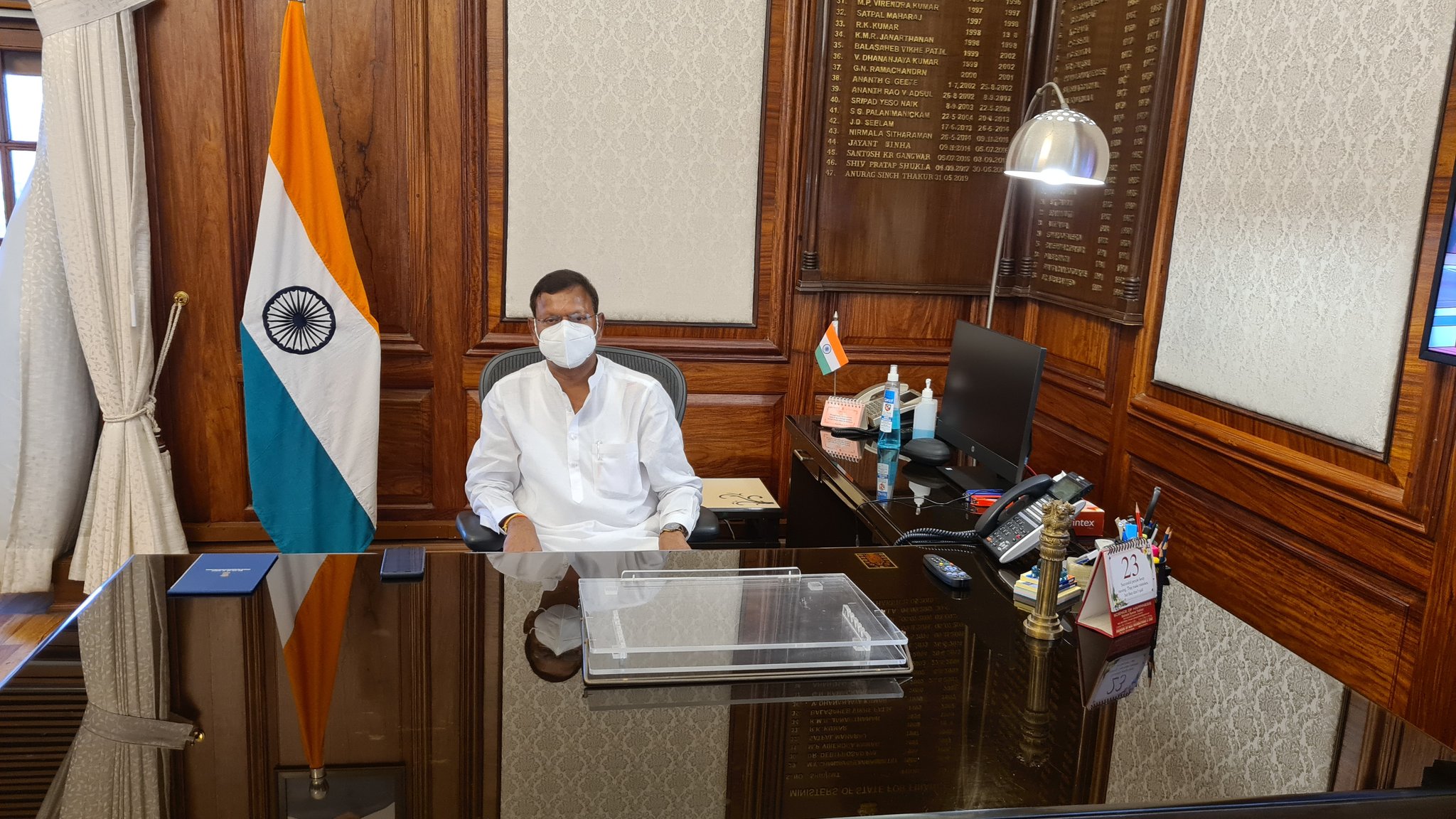ED Is Looking Into Cases Of Cryptocurrency And Digital Currency Fraud, Some Of Which Have Been Found To Involve Money Laundering: MoS Finance.
Cryptocurrency frauds are becoming increasingly complex over time is a serious issue. It is more challenging for customers to protect their money since scammers employ a variety of tactics, like phishing, email scams, giveaway scams, etc.

ED Is Looking Into Cases Of Cryptocurrency And Digital Currency Fraud, Some Of Which Have Been Found To Involve Money Laundering: MoS Finance.
The Enforcement Directorate (ED) is looking into various cases involving fraud involving virtual currencies and cryptocurrency exchanges, according to information provided to Parliament. Virtual digital assets can be utilized unlawfully, according to Pankaj Chaudhary, minister of state for finance.
In recent years, India has attracted millions of investors to the cryptocurrency industry. Early on, individuals were hesitant to engage in this relatively new asset class, but as cryptocurrencies gained popularity, more people started to jump on board.
Sadly, investors weren’t the only ones drawn by this quick expansion. It attracted con artists as well. According to research, Bitcoin Ponzi schemes have defrauded Indians of over 72,000 crores.
The fact that cryptocurrency frauds are becoming increasingly complex over time is a serious issue. It is more challenging for customers to protect their money since scammers employ a variety of tactics, like phishing, email scams, giveaway scams, etc.

According to Chaudhary, the Directorate of Enforcement has responded to these incidents by taking the necessary legal action in accordance with the Prevention of Money Laundering Act, 2002.
As of January 31, 2023, the Directorate had five people in custody, had attached, seized, or frozen proceeds of crime worth Rs 936.89 crore, and had filed six Prosecution Complaints in these instances before the Special Court, PMLA. The Foreign Exchange Management Act of 1999 has also resulted in the seizure of assets worth Rs 289.28 crore.
The minister further mentioned that Zanmai Laboratories Pvt Ltd, popularly known as WazirX, and its directors had received a show cause notice from FEMA for transactions involving cryptocurrencies worth Rs 2,790.74 crore.
Due to the lack of regulation of cryptocurrency assets in India, frauds involving cryptocurrencies are dealt with in accordance with existing laws against fraud and cybercrime.
The government said its position on the country’s crypto standards, claiming that virtual digital assets are now unregulated there. The MoS pointed out that since the government does not register cryptocurrency exchanges any legislation intended to control or outlaw cryptocurrencies may not be successful without a significant level of international cooperation.

White-collar crime cases have been increasing in India, and much is being said about the legendary Enforcement Directorate. Over the past several years, ED actions against numerous people and corporations have increased steadily.
By the end of January 2023, India’s law enforcement organization, the Enforcement Directorate (ED), had discovered 936 crore rupees in revenues from cryptocurrency fraud. While making five arrests and submitting six prosecution complaints (PCs).
When asked if there were any plans for the government to regulate virtual digital assets in the country, Pankaj Chaudhary responded that because cryptocurrencies are by nature borderless, there must be international cooperation to prevent regulatory arbitrage.
Chaudhary stated any legislation for regulation or for banning could only be effective with major international collaboration on the evaluation of the risks and benefits and evolution of common taxonomy and standards.

Crypto frauds and how they do it
According to a recent study, between January and November 2022, hackers stole cryptocurrencies worth $4.3 billion. In comparison to 2021, this implies a rise of 37%.
Investors should be aware of the hazards associated with investing in cryptocurrencies, according to Srikant Bhalerao, co-founder of Seracle, a blockchain startup based in Maharashtra.
Researching any cryptocurrency project on one’s own before investing is the greatest approach to protect oneself. Verify the project’s legitimacy and learn who the project’s sponsors are. It is advised to stay away from investing in the project if the team is anonymous. Investors should also be skeptical of initiatives that promise unrealistic returns or are overhyped, Bhalerao added.
To lure potential victims, fraudsters create bogus crypto tokens. Almost two million investors worldwide have lost money as a result of rug pull scams; many of these investors used cryptocurrency lenders like Celsius, FTX, etc. to make their deposits.
The honeypot method was the most popular one for luring victims, accounting for 98,442 crypto frauds. As the name implies, scammers persuade investors to purchase a cryptocurrency by emphasizing its appealing advantages, but they then sway them away from selling their possessions in order to keep their money locked up in the con.
According to a report, the con stops the customers from reselling their tokens. As a result, the price of the token rises for however long the con artist desires, giving the impression that the token is “mooning,” and deceiving additional users into purchasing it.
According to the research, this is why honeypots are by far the most widely used rug pull since they let their deployers control both the behavior of their users and the token’s price.
With 60,985 scams, “hidden mints” is the second-most popular method utilized by con artists. As the name implies, it enables the developer to produce an infinite number of crypto tokens and market them to naive buyers.
A hidden mint uses a hidden function in the token’s contract to enable one or more externally owned accounts (EOAs), in this case, the personal addresses of the token’s deployers, to create additional tokens.
The report stated that after executing this method, the con artist could sell these extra tokens on the open market, depreciating the tokens held by other people.
Every significant cryptocurrency exchange is affected. The regulatory frameworks in each area where they operate require these exchanges to avoid money laundering. The report added that they also have to comply with additional regulatory requirements in many jurisdictions for market abuse prevention and investor protection.
Although renowned crypto-exchanging platforms and government organizations are making every effort to raise awareness and reduce such scams.
Edited by Prakriti Arora




